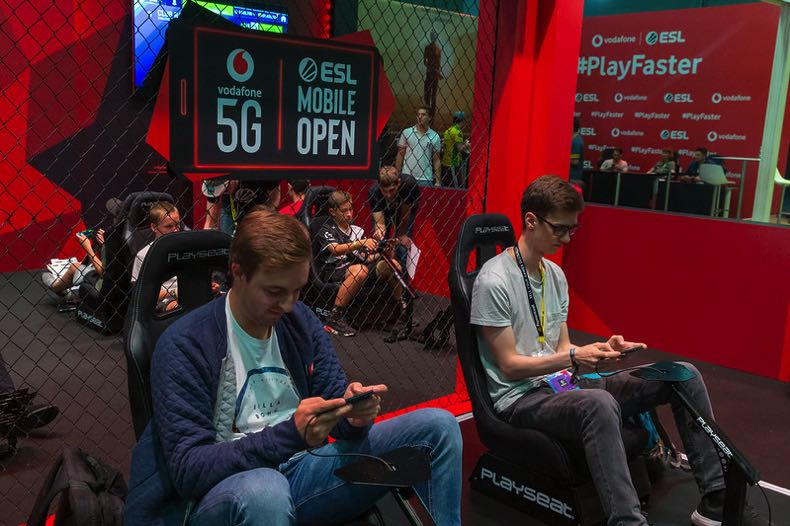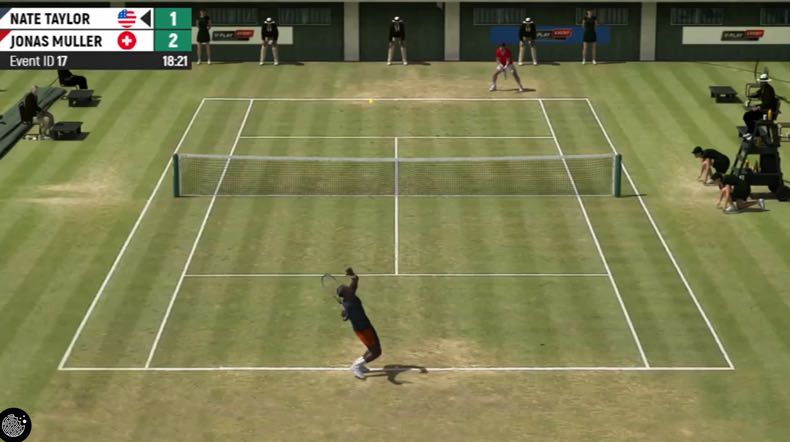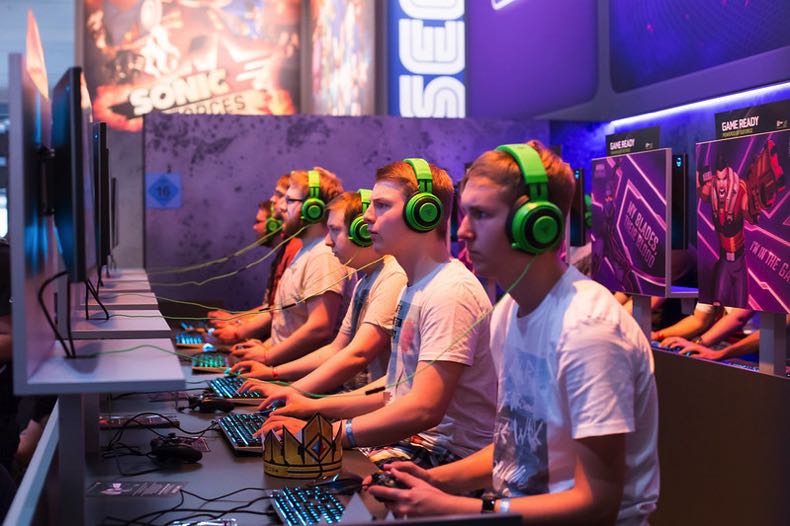
When looking to place bets online, you might well come across the terms ‘virtual sports’ and ‘esports’, and perhaps you may not realise a difference between the two. Though some people confuse them, the terms have completely different meanings and are well established in their own right when it comes to better. But what exactly are the two, and how exactly do they differ?
Esports

Simply put, esports are video games being played competitively by people via an organised competition such as Call of Duty’s League Championship or FIFA’s E-World Cup. Esports could easily be viewed as ‘professional gaming’ whilst the people playing the games can be seen as professional ‘athletes’, even if seem people would heartily disagree with such an assessment.
Recent times have seen the esports industry make massive strides in increasing popularity and in turn there has been a shift in the kind of bets betting companies are providing, with an increased number of bookmakers now providing a range of esports markets.
Why Would People Bet on Esports?
If you travelled back in time to a bygone age of a video game-less world and told your ancestors that people played games professionally through a TV screen and that people bet on the outcomes of such games, they’d most likely consider the future to sound a bit weird and that you were rather crazy. But whilst it might sound weird to an older generation, esports is one of the biggest and fastest-growing industries around at present. And the same goes for the number of people betting on esports. But why exactly is this rise happening?
Betting on Esports
In a similar way to how regular sports bettors have a range of sports to choose from, esports bettors have a range of esports from which to select when deciding to place bets; ranging from FIFA and Call of Duty to games such as Overwatch and Dota and loads more besides. There are various betting markets available for esports, as we shall explain in the next section.
Esports Betting Options
Esport bettors may be enticed with the range of options they have in terms of the types of bets they can place. These options include, but are not limited to, predicting the overall tournament winner, the winner of a certain map (typically seen in multiplayer online battle arenas such as Dota, and First-Person Shooters such as COD), predicting the correct score in best of three rounds contests, and deciding which player is most likely to finish a match with the most kills.
Bettors are often given an option of live betting, i.e. betting while an esports event is taking place, but this service all boils down to which company a punter is using. However, as esports betting rises in popularity, it’s likely that new options will be provided to the punters to make betting on esports more like betting on a football match or a game of tennis when it comes to the number of markets and in-play options available.
Virtual Sports

Essentially, virtual sports are sports that have their outcome generated by a computer algorithm while utilising a random number generator (RNG). Whilst esports also make use of computer technology, esports involve human players who interact with the technology and control the outcome of the action by playing games such as FIFA and COD, virtual sports on the other hand, sees no human involvement in regard to the outcome (it’s all decided by technologically-guided random number generation).
Random Number Generators (RNGs)
The random number generators (RNGs) used by bookmakers, are basically a type of computer-processed algorithm working to generate numbers and outcomes at random but based on the data provided by the software designers. As computers are designed to follow numbers, it is difficult to come up with a genuinely random outcome; hence many bookmakers use software that utilises an algorithm of pseudo random number generation.
These pseudo-RNG’s don’t require external input (numbers/data) to produce an output, just requiring an algorithm and a seed number to produce a number, and therefore an outcome for the virtual sport in question (that fits in with the various graphics, sounds and other aspects that make the virtual sport appealing to view).
Simulation of a Game

As it currently stands, punters are provided with ample choice when it comes to making a bet on virtual sports; with the virtual world including sports, such as football, basketball, hockey and horse racing, among various others. Bettors are often given the opportunity to watch a simulation of these virtual games, being presented with an animation looking somewhat similar to a video game’s graphics. Which is perhaps why they are sometimes confused with esports (as virtual football can look quite similar to a FIFA esports tournament to the untrained eye).
Sometimes the names of teams and players involved in the virtual games are fictional, and this is done in light of copyright restrictions. Bookmakers typically have to pay a fee to the original owner of player/team name, and occasionally these fees can be very high, meaning there’s little justification to use a real team/player name.
Why Would People Bet on Virtual Sports When There Are Real Sports?
It might seem strange that some people opt to bet on a virtual sport, especially if there’s a spate of real sports, and even esports, that they could bet on instead. But it might be something worth considering, as some punters see several benefits present within virtual sports betting, including the following.
Convenience
Although sports take place just about all the time in some place or other around the globe, not all bookies cover all sports. And some sports or event might take place during hours that are inconvenient for some. But even at the latest and earliest hours of a day, virtual sports will always be around. Running 24/7, virtual sport matches happen every few minutes and it doesn’t matter if you’ve missed a game, you can always wait a few minutes and the next match will come along very soon.
Virtual sports also happen very quickly, with games and races typically starting and finishing in the space of a few short minutes. Unlike esports and real sports where the action takes place over a long time before a result is decided and bettors paid out, bettors on virtual sports can place a bet and receive winnings almost immediately; the same can’t be said for those betting on real life football matches who’ll typically have to wait 90 minutes before being able to receive their winnings. That is, unless they have opted for in-play markets, of course, which tend to be settled withing a few minutes of the in-play result occurring.
Constantly Ongoing & Will Never Be Cancelled
Amidst a series of real sport and esports cancellations in early 2020, virtual sports saw a heightened interest. When the Grand National was cancelled in April 2020, a virtual race was set up and televised as a replacement, with the race being won by 18/1 shot Potters Corner. What this shows is that virtual sports can, for the most part, never be cancelled regardless of whatever’s happening in the outside world. Clearly it wasn’t a patch on the real Grand National in the eyes of most punters, but it filled a gap and it was better than nothing at the time.
Less Research Required
Compared to esports, where bettors typically have to go through long hours of research just to make some educated and hopefully successful bets, bettors involved in the virtual sports market don’t require as much research given that all the competitors are completely made up.
Indeed, whilst this might sound appealing, whether a bet is successful or not will all depend on how lucky the virtual sports bettor is. Although they won’t have to do research on two algorithm-led teams playing virtually against each other, a bettor will have to hope that the team they’ve bet on will still deliver the goods (even though it depends wholly on the random number generator doing them a favour).
Virtual Sport Betting Options
The betting options that those betting on virtual sports have depends on their selected sport. A bet on a virtual horse race gives the punter a choice of predicting which horse will finish the race as the winner and can usually place to win or each way bets, whilst those betting on a virtual football match can select any of a range of markets including whether the match will be won by a team or drawn, and how many goals will be scored in a game (will it be over 2.5 goal?) among others.
There are other options such as forecasts and tricasts available in some virtual sports (horse racing, dog racing and motorsports) and various other options with things like virtual basketball including handicap betting.
So, What’s the Difference?

All in all, it can be clearly defined that esports and virtual sports are two completely different entities. Virtual sports have their outcome decided by the work of artificial intelligence, whilst esports are decided by humans interacting with technology to play video games in a competitive environment.
Esports can be viewed as a close counterpart to real-life sport, in that humans must work hard mentally and indeed physically in order to win their matches, whilst also being liable to the illnesses and injuries that real athletes are susceptible to. Virtual sports, however, should really be viewed as something more akin to that of a slot machine, in that the outcome of a bet isn’t decided by the work of an athlete, but instead through the roll of the AI technology’s proverbial dice; simply put, virtual sports betting is all down to a hope that AI’s on your side and no amount of research or skill is going to improve your chances of winning.
With esports betting, on the other hand, becoming familiar with the players, teams, games and playing styles can potentially give you something of an edge against bookies who are still getting to grips with this fast-growing area of betting.
